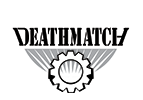In the final episode of Season 3, Ariel Liguori and Gaston Brait compete to design a cloud enabled data center for Show Me Products international, the leading manufacturer of barings for the machines that make fidget spinners. Watch now to see who judges, Michael Zsiga and S1E3 winner Daniel Dib, choose to the winning design! To see the entirety of winner, Ariel Liguori’s run through, see the video below!
Challenge Details:
Show Me International Products
Show Me International Products is an international company based in Eminence, Missouri. While they have had a broad variety of products in the past, their primary source of revenue currently is making the barings for fidget spinners and driving parents around the world crazy. They are considering using you for a complete redesign and definition of their data center and cloud strategy, but before they commit to working with you, they would like you to consider a scenario and explain how you would architect it.
The Scenario
In this scenario, you will be tasked as a modern consultant being asked by a F500 business to drive significant value to their business by taking them into a pure digital economy with agile engineering practices that allow for true business micro-experimentation. Make no mistake about it – these are not merely buzzwords, and will require a superb cross-functional depth of knowledge in many areas, as all modern consultants are expected to posses. This will be achieved by a combination of working to drive a true DevOps culture change with and between Lines of Business, Application teams including Product Managers, App Devs, Performance Testing Devs, CI/CD/CD pipeline Devs, Applistructure Devs, and traditional Operations teams including SysAdmins, Compute, Virtualization, Containerization, Networking, and Security teams. For the purpose of this scenario, you will mostly be tasked with how to design an over-arching solution that is both technically sound, highly scalable, reliable and secure. As a bonus, you may also elect to add verbal comments as to how you would sell this solution to the C-Level – most prominently the CMO, CTMO, CIO, CTO and CFO. Please choose between Cisco and Open Source products to build a private cloud that provides PaaS/IaaS/ITaaS, and includes:
- A highly scalable DC fabric architecture that supports:
- Open-Standards ReST-based API with a well-formed model
- Secure control and data-plane multi-tenancy architecture with support for SLDCs (see below)
- Simple, scalable and open, yet secure networking IPv4 space (sorry IPv6 lovers) – every SLDC must support at least 5K IP-addressed nodes, except for “Prod”, which must support at least 10K IP-addressed nodes
- Every app deployed in this fabric must have/allow for complete intra-app-tier isolation, with prod nodes providing for complete intra-node isolation
- Single-pane-of-glass troubleshooting, with ability to roll-back any infrastructure configuration based on and directly tied to the application being rolled back
- A cloud management platform and architecture that supports:
- Open-Standards ReST-based API with a well-formed model
- Secure control and data-plane multi-tenancy architecture with support for SLDCs
- Ability to model applications and deploy them directly into one or a combination of Bare Metal machines, Virtual Machines and/or Containers
- Applications must be able to be deployed to Public Cloud or on-prem Private Cloud based on open-source virtualization platform on top of above-mentioned fabric, while providing same/similar policy with regard to L4-7 services and networking constructs
- A Service Catalog that supports:
- Applications from CMP above to be published and deployed
- Chargeback/Showback models
- Customization/Skinning
- An open-source container runtime and orchestration system that supports:
- Treat multiple Private/Public Cloud as single platform
- API gateway and dynamic load balancing services
*A node may be interchangeably defined as a Bare Metal machine, a Virtual Machine, or a Container residing on either BM or VM




